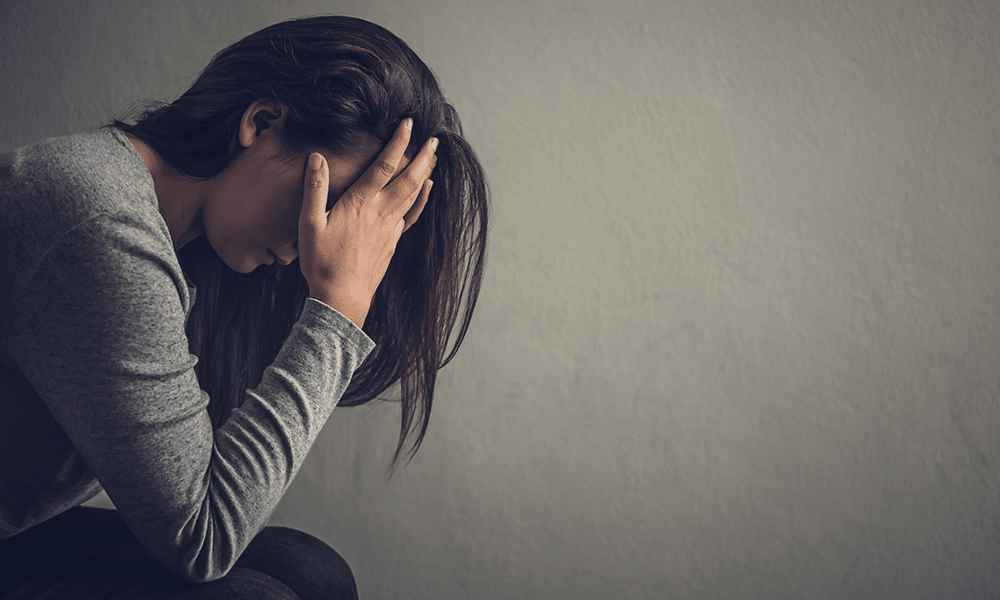Introduction
Substance use disorders and anxiety often go hand in hand, creating a challenging cycle for those affected. In many cases, individuals rely on substances like alcohol or drugs to cope with stress or emotional pain, which may initially offer temporary relief. However, this dependency often deepens anxiety over time, especially when anxiety during withdrawal sets in, as the body struggles to adjust to the absence of substances it has become dependent on.
Anxiety during withdrawal is a common symptom experienced throughout the recovery process. As the body detoxifies, it reacts to the absence of substances that once altered brain chemistry and provided a false sense of calm. Consequently, this reaction often triggers heightened feelings of anxiety and panic, making the early stages of withdrawal particularly difficult to endure.
Therefore, it’s crucial to address anxiety during withdrawal. Ignoring these symptoms can jeopardize recovery progress and even lead to relapse. A well-structured substance abuse relapse prevention plan can be instrumental in sustaining recovery and avoiding such setbacks.
By recognizing and managing anxiety effectively, individuals increase their chances of maintaining sobriety and achieving long-term wellness. In this regard, substance abuse counseling plays a critical role in helping those with substance use disorders not only overcome their addiction but also gain the tools needed to manage anxiety.
Understanding the connection between anxiety and withdrawal is the first step toward a successful recovery journey.
Understanding Withdrawal Symptoms
Withdrawal is the difficult time when the body gets used to not having a substance it has become dependent on. This process of detoxification can cause various physical and mental reactions.
Common Withdrawal Symptoms:
- Anxiety: Often a primary symptom, anxiety can become especially pronounced during withdrawal.
- Depression: Feeling low or hopeless is common as the brain readjusts its chemical balance.
- Physical Discomfort: Symptoms like nausea, headaches, muscle pain, and tremors are frequently reported.
- Smoking Cessation Symptoms: If the substance being withdrawn from is nicotine, one might experience additional symptoms. The CDC outlines 7 common withdrawal symptoms associated with quitting smoking.
The length of withdrawal symptoms can vary greatly depending on several factors:
- Type of Substance: Different substances have different withdrawal timelines. For instance, alcohol withdrawal might peak within 72 hours, while opioid withdrawal can last longer.
- Duration of Use: Long-term users may experience more prolonged and intense symptoms.
- Individual Factors: Personal health, genetic predisposition, and psychological state all play significant roles.
Understanding these factors provides important insight into why withdrawal feels so overwhelming and emphasizes the need for comprehensive support during this time.
The Anxiety Connection
Why Do I Feel Nervous When I Stop Using Drugs? Understanding Anxiety During Withdrawal
When you stop using drugs, your body and mind go through a period of adjustment. This transition is often stressful and can result in heightened anxiety levels. Substances like alcohol and opioids alter brain chemistry, creating temporary feelings of euphoria or relaxation. Once these substances leave your system, your brain struggles to regain its natural balance, leading to increased anxiety.
Impact of Pre-existing Anxiety Disorders
For individuals with pre-existing anxiety disorders, withdrawal can be particularly challenging. These individuals already have an overactive stress response, so the added strain of withdrawal may exacerbate symptoms like panic attacks and constant nervousness. This makes it crucial to address existing mental health conditions during recovery.
Substance-Specific Anxiety Triggers
Not all substances affect anxiety levels in the same way. Here’s a quick comparison:
- Alcohol: Known for its depressant effects, alcohol initially reduces anxiety but can lead to severe rebound anxiety during withdrawal.
- Opioids: These pain-relief medications also create a sense of calm but withdrawing from them often results in significant anxiety and agitation.
- Stimulants (e.g., cocaine, methamphetamine): These increase alertness and energy but can cause extreme anxiety during both use and withdrawal due to their impact on the nervous system.
Understanding these variations helps tailor coping strategies more effectively for each individual’s unique experience.
The Science Behind Anxiety During Withdrawal
Understanding how substances impact the brain can shed light on why anxiety spikes during withdrawal. Substances like alcohol, opioids, and stimulants alter brain chemistry by affecting neurotransmitters—chemical messengers that influence mood, emotion, and behavior.
1. Neurotransmitter Disruption
Drugs can increase or decrease the levels of neurotransmitters such as dopamine, serotonin, and GABA. For instance, alcohol enhances the action of GABA, a calming neurotransmitter, while reducing glutamate, which excites the brain. This creates a temporary sense of relaxation or euphoria.
2. The Rebound Effect
When substance use stops suddenly, the brain struggles to regain balance. Imagine a pendulum swinging back after being pushed—the sudden absence of these substances can lead to an overcompensation or “rebound effect,” resulting in heightened anxiety. The brain is essentially going through withdrawal from its own chemically-induced equilibrium.
3. Stress Hormones
During detoxification, the body releases stress hormones like cortisol and adrenaline. These hormones prepare the body for a “fight or flight” response but also contribute to feelings of anxiety and panic. Elevated levels of these hormones during withdrawal can make the process physically and emotionally challenging.
Understanding these biological mechanisms highlights why professional help is crucial in managing withdrawal symptoms effectively.
Physical Symptoms of Anxiety During Withdrawal
When going through withdrawal, anxiety often comes with a range of physical symptoms that can be quite distressing. Here are some common physical signs of anxiety during this time:
- Rapid Breathing: You may feel like you’re not getting enough air, which can lead to increased nervousness and feelings of suffocation.
- Muscle Tremors: Shaking or trembling muscles, especially in the hands, are typical. These tremors can make simple tasks difficult and contribute to a sense of helplessness.
- Sweating: Profuse sweating is another common symptom that often accompanies anxiety, making you feel uncomfortable and self-conscious.
Experiencing these physical symptoms can make you feel even more panicked or scared. For example, rapid breathing not only makes you anxious but also lightheaded, which then feeds back into your anxiety loop. Similarly, muscle tremors might cause embarrassment or frustration, further increasing stress levels.
By understanding these physical signs, you can better recognize and manage anxiety during withdrawal.
Coping Strategies for Managing Anxiety During Withdrawal
Dealing with anxiety during withdrawal can be incredibly challenging. Finding effective coping strategies is essential to manage these symptoms and support the recovery process. Here are some practical approaches:
Seek Professional Help
Severe anxiety symptoms can be overwhelming, making it essential to seek help from healthcare professionals. They can provide personalized care and, if necessary, prescribe medications to ease withdrawal symptoms.
- Where to start: Contact a medical detox program like Casco Bay Recovery in Downtown Portland for comprehensive support tailored to your needs.
Recommended Coping Strategies
Regular Exercise
Physical activity releases endorphins and boosts overall mood. It also helps reduce stress levels and improves sleep quality.
- Aerobic exercises: Running, swimming, or cycling.
- Mind-body exercises: Yoga or Tai Chi.
Nutrition
A balanced diet rich in vitamins and minerals can significantly impact mental health.
- Omega-3 fatty acids: Found in fish like salmon and flaxseeds, they support brain health.
- Complex carbohydrates: Whole grains, fruits, and vegetables help maintain steady blood sugar levels, which can prevent mood swings.
Relaxation Techniques
These techniques help calm the mind and reduce anxiety.
- Meditation & Breathing Exercises: Mindfulness meditation focuses on being present in the moment without judgment. Apps like Headspace or Calm can guide you through sessions. Deep breathing techniques can help regulate your nervous system.
- Sleep Hygiene: Quality sleep is crucial for mental health and recovery. Establish a routine by going to bed and waking up at the same time every day. Create a restful environment by keeping your bedroom dark, cool, and quiet. Limit screen time before bed to promote better sleep.
Incorporating these coping strategies into your daily routine can make a significant difference in managing anxiety during withdrawal. It’s essential to find what works best for you and remain consistent with these practices.
Moreover, it’s important to remember that anxiety management techniques should be personalized to fit individual needs. Experimenting with various strategies may be necessary to find the most effective ones for your specific situation.
Support Systems for Overcoming Anxiety During Withdrawal
When dealing with withdrawal, recovery groups and professional support are essential for managing anxiety. Connecting with others who understand what you’re going through can make a significant difference.
Benefits of Joining Support Groups or Therapy Sessions
- Emotional Support: Sharing your journey with others in similar situations provides a sense of camaraderie and understanding.
- Accountability: Regularly attending group meetings or therapy sessions helps keep you committed to your recovery goals.
- Shared Strategies: Hearing about coping mechanisms that work for others can offer new approaches to managing your anxiety.
Alleviating Feelings of Isolation
Isolation can make anxiety worse during withdrawal. Engaging with a support network offers:
- Connection: Building relationships with peers who share similar struggles reduces feelings of loneliness.
- Encouragement: Mutual support within groups fosters motivation and resilience.
- Resource Sharing: Access to information about additional resources and services that may assist in your recovery.
Recovery groups and professional support systems are crucial during the detoxification process, offering both emotional support and practical guidance. These support groups can also serve as a valuable resource, providing not just emotional backing but also practical advice and strategies from those who have successfully navigated similar challenges.
Seeking Professional Help for Anxiety Management During Withdrawal
Medical detox programs, such as those offered by Casco Bay Recovery, provide a structured environment where individuals can safely navigate the withdrawal process. These programs are designed to manage both physical and psychological symptoms, including anxiety, providing a comprehensive approach to recovery.
Benefits of Medical Detox Programs:
- 24/7 Supervision: Constant medical oversight ensures that withdrawal symptoms are managed promptly.
- Medication-Assisted Treatment (MAT): Certain medications can help alleviate severe anxiety and other withdrawal symptoms.
- Therapeutic Support: Access to counseling and therapy sessions to address emotional and psychological challenges.
- Tailored Treatment Plans: Customized plans based on individual needs and substance use history.
How These Programs Address Anxiety:
- Medical Interventions: Medications like benzodiazepines may be prescribed temporarily to manage acute anxiety.
- Non-addictive medications such as SSRIs can help stabilize mood in the long term.
- Behavioral Therapies: Cognitive Behavioral Therapy (CBT) helps reframe negative thought patterns contributing to anxiety.
- Mindfulness-based therapies teach relaxation techniques to reduce stress.
- Supportive Environment: Safe and controlled settings reduce external stressors that might exacerbate anxiety.
- Peer support within treatment facilities fosters a sense of community and shared experience.
Seeking professional help through medical detox programs, like those provided by Casco Bay Recovery, can make a significant difference in managing anxiety during withdrawal. These programs ensure a safer and more comfortable recovery journey. If you or a loved one is struggling with addiction, don’t hesitate to reach out for help by contacting Casco Bay Recovery.
When to Seek Immediate Help for Severe Anxiety Symptoms During Withdrawal
Experiencing anxiety during withdrawal can be challenging, but recognizing when it reaches a critical level is crucial. Signs that indicate the need for immediate professional intervention include:
- Severe mood changes: Rapid and extreme shifts in mood can be a red flag.
- Suicidal thoughts: If you or someone you know starts having thoughts of self-harm or suicide, seek help immediately.
- Intense panic attacks: Overwhelming fear or anxiety that feels unmanageable.
Resources available for urgent mental health support:
- National Suicide Prevention Lifeline: 1-800-273-TALK (8255)
- Crisis Text Line: Text HOME to 741741
- Local emergency services: Dial 911 or visit the nearest emergency room.
Understanding why anxiety spikes during withdrawal is vital. Recognizing these severe symptoms ensures you get the right support promptly and safely.
Conclusion: Embracing Recovery from Anxiety During Drug Withdrawal
The recovery journey is challenging but incredibly rewarding. Understanding anxiety and its role in withdrawal is a crucial step in navigating this path.
- Seek Help: Never hesitate to reach out for professional assistance. Whether it’s therapy, counseling, or medical detox programs, support is available.
- Utilize Coping Strategies: Incorporate regular exercise, balanced nutrition, relaxation techniques, and good sleep hygiene into your daily routine. These can significantly alleviate anxiety symptoms.
- Lean on Support Systems: Engage with support groups or therapy sessions. Connection with others who share similar experiences can provide immense emotional relief.
Remember, asking “Why Do I Feel Nervous When I Stop Using Drugs? Understanding Anxiety During Withdrawal” is a normal part of the process. Embrace these feelings as part of your growth and healing. Your courage to confront and manage anxiety will empower you to reclaim your life from substance use.








